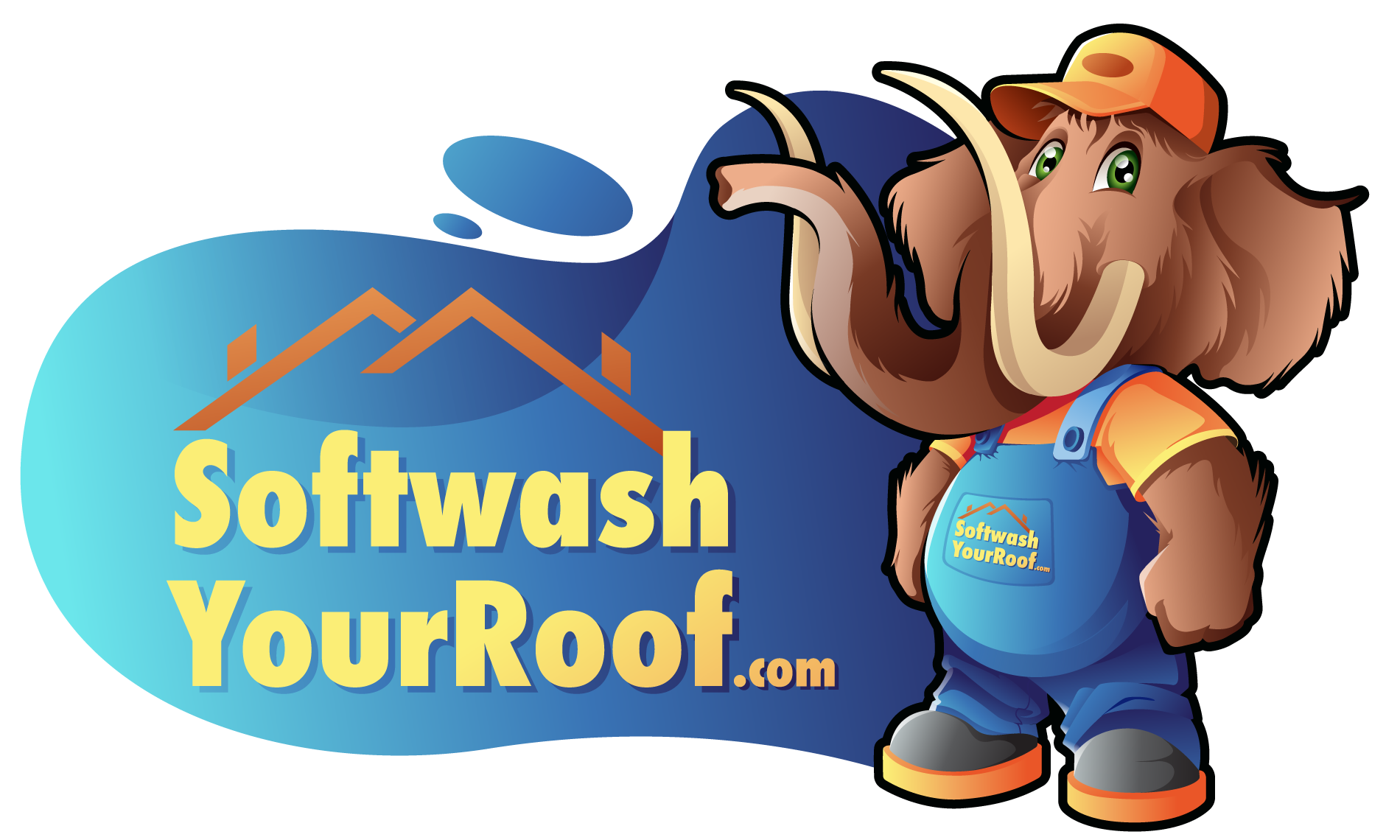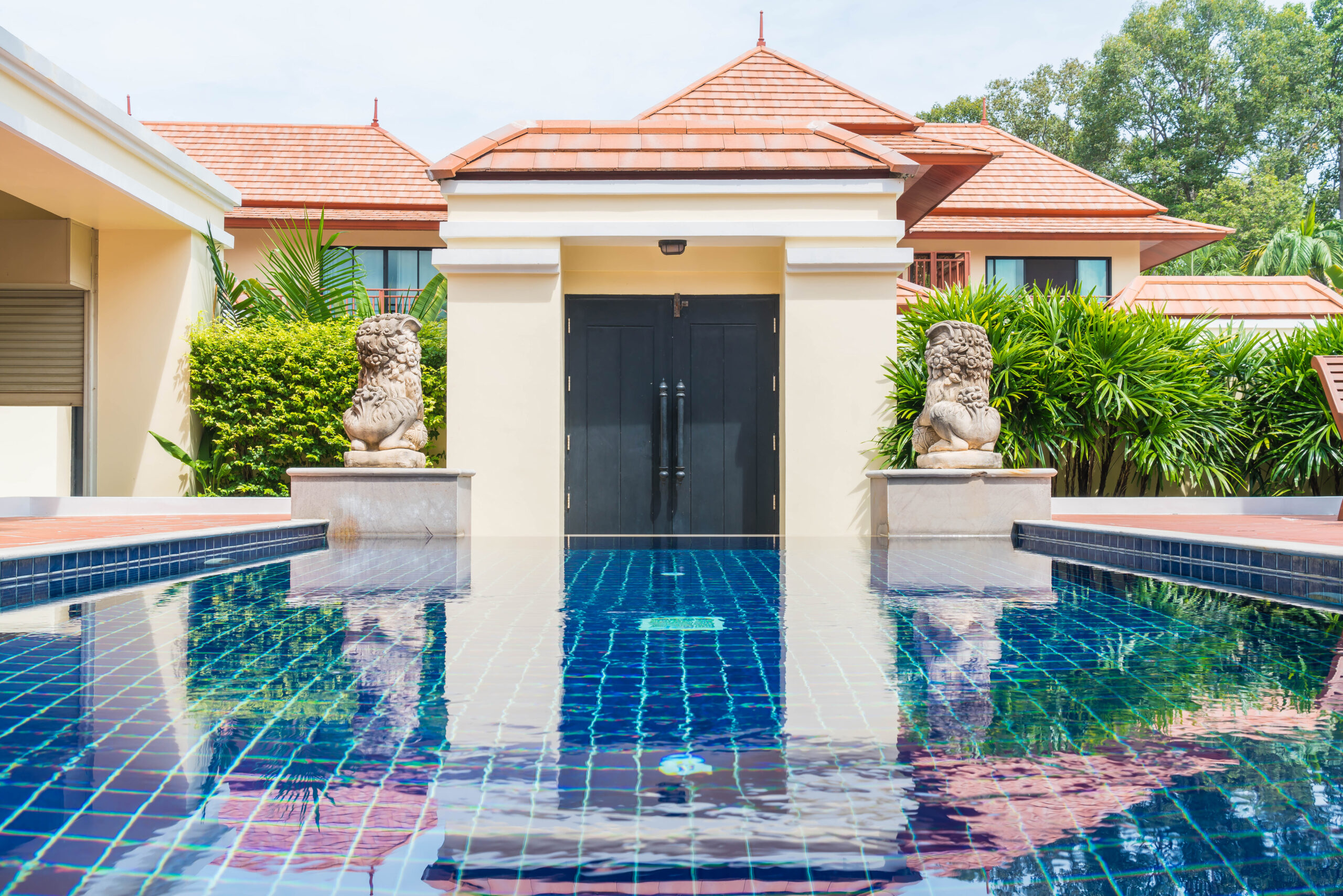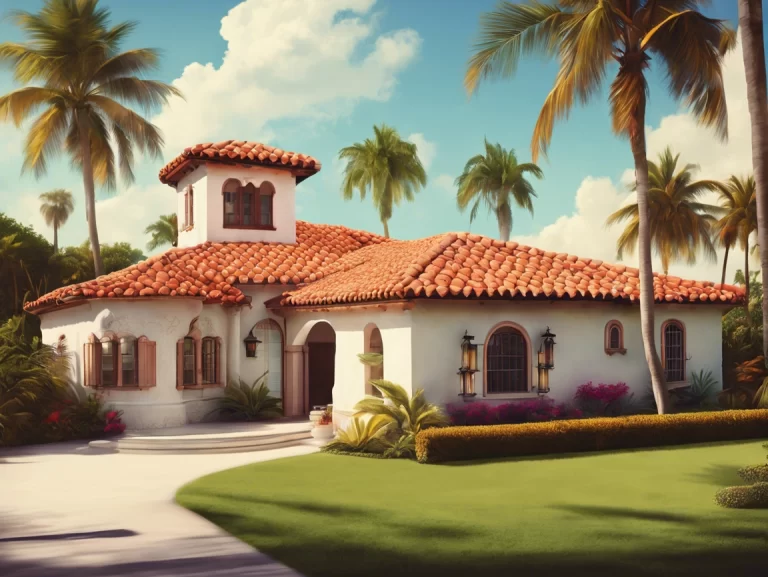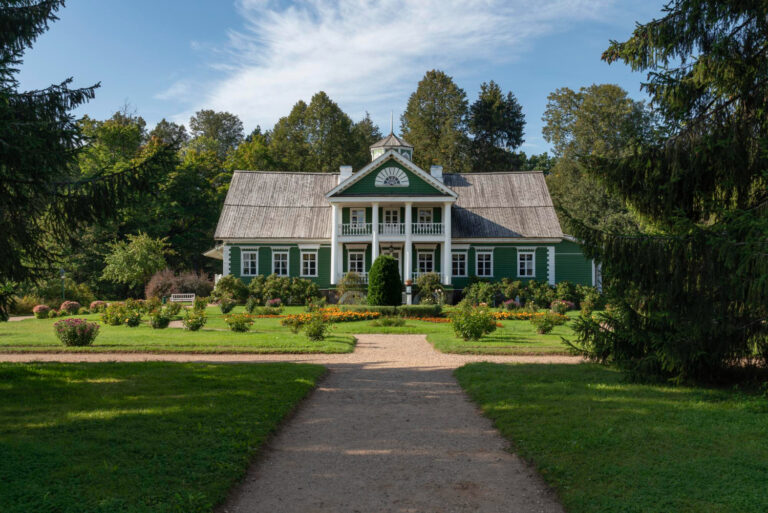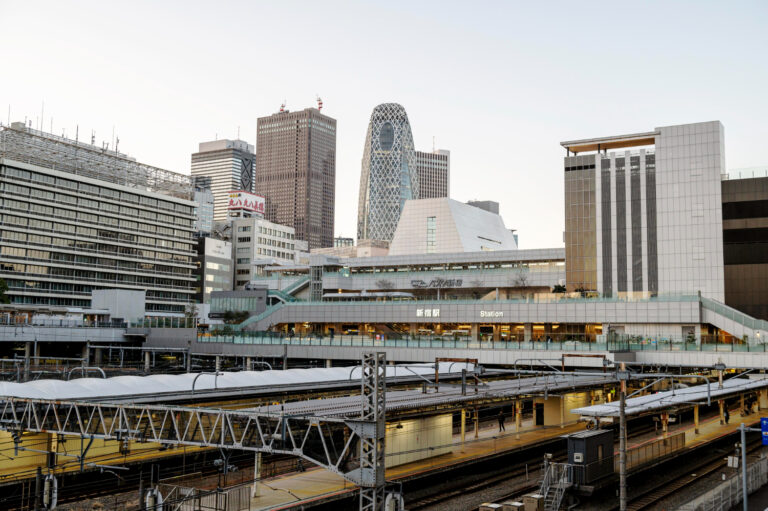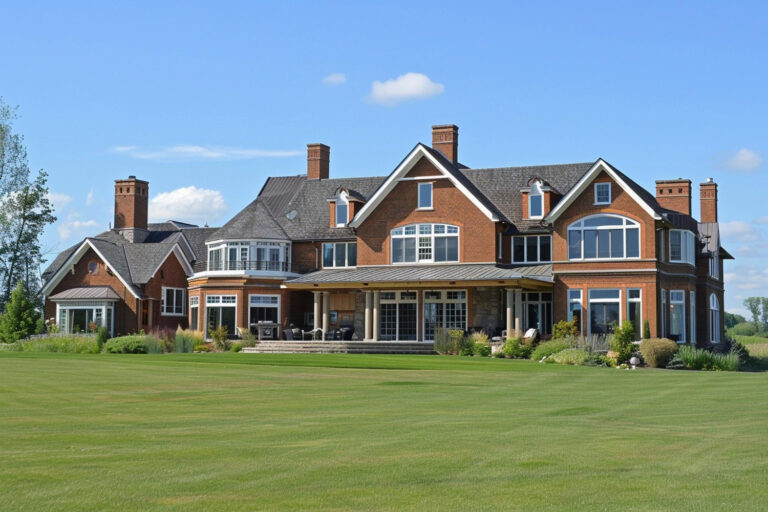How to Keep Your Tropical Home Pristine with Soft Washing!
Soft Washing Tropical Regions: A Comprehensive Guide
Soft washing is a powerful technique for maintaining roof tiles in tropical regions. It gently removes algae, dirt, and grime without damaging delicate roof surfaces. Soft washing is especially beneficial in humid, rainy climates prone to organic growth.
This comprehensive guide explores the advantages of soft washing for tile roofs. It covers the critical steps in the process and the ideal surfaces to treat. Following these expert tips, homeowners can keep their roofs clean, protected, and looking great for years in even the most challenging tropical environments.
Understanding Soft Washing
Soft washing is a low-pressure cleaning technique that uses specialized solutions to remove organic stains, algae, and mildew from exterior surfaces. This method is gentle yet effective, ideal for delicate surfaces like roof tiles, siding, and windows.
Definition and Importance
Soft washing combines a biodegradable disinfecting solution with low water pressure to kill mold, mildew, bacteria, and other harmful growth. This approach is crucial in tropical regions, where high humidity and warm temperatures create the perfect organic growth environment.
Regular soft washing helps maintain your roof's appearance, prevent damage, and extend its lifespan. By removing algae and moss, soft washing restores your roof's original color and protects it from deterioration caused by these organisms.
Difference Between Soft Washing and Pressure Washing
While both methods clean exterior surfaces, they differ in their approach and suitable applications. Pressure washing uses high water pressure to blast away dirt and grime, making it ideal for durable surfaces like driveways and sidewalks.
In contrast, soft washing relies on cleaning solutions and low water pressure to gently remove organic growth without damaging delicate surfaces. Soft washing is preferred for roofs, siding, and other sensitive areas.
Soft washing is also more effective at eliminating the root systems of algae and moss, preventing their regrowth. Pressure washing may remove surface growth but leaves the roots intact, leading to quicker reappearance of the problem.
Benefits of Soft Washing in Tropical Regions
Soft washing offers numerous benefits in tropical regions. It effectively prevents algae and mold growth on roofs and siding, and the gentle cleaning process prolongs the life of these surfaces.
Eco-friendly cleaning solutions used in soft washing are safe for the environment. They don't contain harsh chemicals that can harm plants or wildlife.
Soft washing is cost-effective compared to traditional pressure washing methods. It requires less water and energy, resulting in lower utility bills.
Regular soft washing maintenance can save money on costly repairs down the line. It prevents damage caused by organic growth and extends surface lifespans.
Prevents Algae and Mold Growth
Tropical climates are prone to algae and mold growth on exterior surfaces. Soft washing effectively removes these contaminants without damaging the substrate.
The biodegradable cleaning solutions penetrate deep into crevices to eliminate spores. This prevents regrowth and keeps surfaces clean for more extended periods.
Prolongs Roof and Siding Life
Soft washing is gentle on roofs and siding, preventing premature wear and tear. High-pressure washing can strip away protective coatings and damage surfaces.
By using low-pressure techniques, soft washing preserves the integrity of materials. This extends their lifespan and reduces the need for frequent replacements.
Eco-Friendly Cleaning Solutions
Soft washing utilizes environmentally friendly and biodegradable cleaning products. They break down quickly without leaving harmful residues in the ecosystem.
These solutions are safe for plants, pets, and humans, making them ideal for homes. They effectively clean surfaces while minimizing the environmental impact.
Cost Savings
Soft washing is a cost-effective alternative to traditional pressure washing methods. It requires less water and energy, resulting in lower utility bills.
Regular softwashing maintenance prevents costly repairs caused by organic growth damage. Extending the lifespan of roofs and siding saves money in the long run.
Steps to Perform Soft Washing
Here are the steps to perform soft washing in tropical regions:
Materials Needed
- Soft wash system or low-pressure washer
- Cleaning solution (sodium hypochlorite, surfactants)
- Garden hose
- Safety gear (goggles, gloves, non-slip shoes)
- Ladders (if necessary)
Preparation
- Cover plants, furniture, and outdoor decor.
- Close windows and doors tightly.
- Remove loose debris from surfaces.
- Keep pets and people away during cleaning.
Step-by-Step Process
- Mix the cleaning solution according to the manufacturer's instructions.
- Apply solution evenly across surfaces in sections.
- Let the solution sit for the recommended time to break down contaminants.
- Rinse thoroughly from top to bottom with low pressure.
- Inspect and touch up any spots needing extra attention.
Safety Precautions
- Wear protective gear to avoid contact with skin and eyes.
- Follow the manufacturer's instructions for pressure washer use.
- Read labels carefully when using cleaning agents.
- Never point a pressure washer at yourself or others.
- Store equipment and solutions safely away from children and pets.
Following these steps, you can effectively softwash your home's exterior while prioritizing safety and achieving the best results.
Ideal Surfaces for Soft Washing in Tropical Areas
Soft washing is an ideal cleaning method for various surfaces in tropical regions. It effectively removes algae, mold, and grime without damaging the substrate. Roofs, especially tile roofs, benefit from soft washing as it gently cleans without dislodging tiles or stripping granules.
Siding materials like vinyl, stucco, and wood are also well-suited for soft washing. The low-pressure application safely removes stains and growth, restoring the siding's appearance.
Soft washing eliminates clogs caused by organic debris and ensures proper water flow for gutters. This helps prevent damage to the gutter system and the home's foundation.
Patios and decks in tropical areas are prone to mildew and algae growth. Soft washing these surfaces enhances their appearance and improves safety by reducing slipperiness.
Soft washing is a versatile and effective cleaning solution for multiple surfaces in tropical regions, providing thorough cleaning while minimizing the risk of damage.
Conclusion
Soft washing is a game-changer for maintaining exterior surfaces in tropical regions. Removing organic growth and stains keeps roofs, siding, and other areas clean and protected. Homeowners can enjoy the benefits of a well-maintained property without the risks associated with high-pressure cleaning.
Incorporating regular soft washing into your maintenance routine is a wise investment. It enhances your home's appearance and extends the lifespan of your roof and other surfaces, saving you money in the long run. For a free quote on soft washing services, contact Softwash Your Roof at (786)876-3505 or john@softwashyourroof.com.
FAQs
1. What are the benefits of soft washing a house?
Soft washing is highly effective for cleaning your home's siding and roof without the risks associated with high-pressure washing. Unlike pressure washing, which can damage siding, crack roof tiles, and break windows, soft washing is a safe method for all home exterior surfaces.
2. Should I rinse the roof after soft washing it?
Yes, it is generally recommended that the roof be rinsed after the application of soft washing solutions to remove any residual cleaning agents and ensure a thorough clean.
3. Which is more suitable for cleaning vinyl siding: pressure or soft washing?
Soft washing is the preferred method for cleaning vinyl siding. It minimizes the risk of damage to the siding by using lower water pressures combined with effective cleaning detergents, essential for removing dirt without harming the vinyl.
4. What cleaning agents are used in soft washing?
Soft washing typically involves a mixture of bleach, algaecides, surfactants, and water. This combination effectively removes mildew, organic stains, and algae growth from exterior surfaces, making it a gentler alternative to power washing, which relies on high-pressure water, often heated, to clean surfaces.
